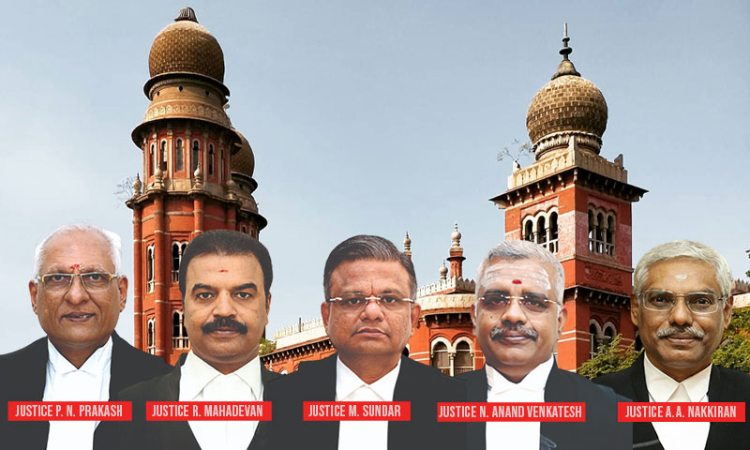Madras High Court Full Bench Rules In Favour Of Original Jurisdiction Of High Court For Hearing Child Custody Cases
Upasana Sajeev
2 Sept 2022 2:47 PM IST

Next Story
2 Sept 2022 2:47 PM IST
The Madras High Court on Friday ruled in favour of original jurisdiction of High Court for hearing child custody and guardianship cases in a 3:2 majority decisionThe five judge bench comprising of Justice PN Prakash, Justice R Mahadevan, Justice M Sunder, Justice Anand Venkatesh and Justice AA Nakkiran was constituted following reference by a three judge bench to answer the...
